#fuel management system for fleet
Text
The Comprehensive Guide to Fleet and Fuel Management Systems: Tracking, Monitoring, and Optimizing Your Fleet’s Fuel Efficiency

Managing a fleet effectively is crucial for any organization relying on transportation. An efficient fleet management system can make a significant difference. In this comprehensive guide, we explore how a fleet management system, fuel management system, fuel tracking system, fuel management system for fleet, and fuel monitoring system can optimize your fleet’s fuel efficiency.
What is a Fleet Management System?
A fleet management system is a tool designed to oversee various aspects of vehicle operation. It helps businesses track and manage their fleet’s performance, maintenance, and overall efficiency. By integrating a fleet management system, organizations can monitor their vehicles in real-time. This leads to better decision-making and reduced operational costs.
Key Features of Fleet Management Systems
Fleet management systems offer several features. They include GPS tracking, route optimization, and maintenance scheduling. These tools are essential for improving fleet operations. By utilizing these features, businesses can enhance their overall efficiency and reduce unnecessary expenditures.
Benefits of Using Fleet Management Systems
The primary benefit of a fleet management system is cost savings. It helps in reducing fuel consumption by optimizing routes. Additionally, it improves vehicle maintenance by scheduling regular check-ups. Overall, it enhances fleet productivity and operational efficiency.
Understanding Fuel Management Systems
A fuel management system is crucial for tracking fuel usage and preventing fraud. This system monitors fuel transactions and ensures that fuel is used efficiently. Implementing a fuel management system for fleet operations can significantly reduce fuel costs and wastage.
How Fuel Management Systems Work
Fuel management systems track fuel consumption through various methods. These include on-board sensors and real-time data collection. The data gathered helps in identifying any discrepancies in fuel usage. Consequently, this aids in preventing fuel theft and ensuring accurate fuel reporting.
Advantages of Fuel Management Systems
One of the main advantages of a fuel management system is the reduction in fuel theft. Additionally, it helps in monitoring fuel consumption patterns. This information is valuable for making informed decisions about fuel purchasing and usage. Overall, a fuel management system contributes to cost savings and improved fuel efficiency.
The Role of Fuel Tracking Systems
Fuel tracking systems are designed to monitor and record fuel usage across your fleet. They provide detailed reports on fuel consumption and help in identifying any irregularities. Implementing a fuel tracking system enhances the accuracy of fuel reporting and supports better decision-making.
Features of Fuel Tracking Systems
Fuel tracking systems come with various features. These include real-time monitoring, detailed reporting, and alert systems for anomalies. By utilizing these features, businesses can keep a close eye on fuel usage and make necessary adjustments to improve efficiency.
Benefits of Fuel Tracking Systems
The benefits of a fuel tracking system are significant. They include improved accuracy in fuel reporting and enhanced fraud prevention. Furthermore, these systems help in identifying areas where fuel usage can be optimized. Overall, fuel tracking systems contribute to better fuel management and cost efficiency.
Integrating Fuel Management with Fleet Management Systems
Combining a fuel management system for fleet provides a holistic approach to vehicle and fuel management. This integration allows for seamless data sharing between systems. As a result, businesses can achieve greater control over both vehicle performance and fuel usage.
How Integration Improves Efficiency
Integration of fleet and fuel management systems enables real-time data synchronization. This leads to better insights into vehicle and fuel performance. Consequently, businesses can make informed decisions regarding route planning, fuel purchasing, and vehicle maintenance.
Steps for Successful Integration
Successful integration involves several steps. First, ensure that both systems are compatible and can communicate effectively. Next, configure the systems to share data seamlessly. Finally, monitor the integration process and make adjustments as needed. This ensures that you reap the full benefits of both systems.
Optimizing Fuel Efficiency with Management Systems
Optimizing fuel efficiency is a key objective of both fleet and fuel management systems. By leveraging the features of these systems, businesses can significantly reduce fuel consumption and operational costs.
Strategies for Fuel Optimization
Implementing strategies for fuel monitoring system involves several key practices. These include regular vehicle maintenance, route optimization, and driver training. By adopting these practices, businesses can enhance fuel efficiency and reduce overall fuel costs.
Role of Data Analytics in Optimization
Data analytics plays a crucial role in optimizing fuel efficiency. By analyzing data collected from fleet and fuel management systems, businesses can identify patterns and trends. This information helps in making informed decisions about fuel usage and vehicle management. Consequently, it leads to improved fuel efficiency and cost savings.
Conclusion
A fleet management system and a fuel management system are essential tools for any organization relying on transportation. By understanding and implementing these systems, businesses can achieve significant improvements in fuel efficiency and operational productivity. Integrating a fuel management system with a fleet management system enhances overall efficiency and helps in optimizing fuel usage. By leveraging the features and benefits of these systems, businesses can make informed decisions and achieve cost savings.
#Fleet management system#Fuel management system#fuel tracking system#fuel management system for fleet#fuel monitoring system
0 notes
Text
Transforming Fleet Efficiency: Innovations in Fuel Management and Advanced Transportation Solutions
In the realm of logistics and transportation, the optimization of fleets plays a pivotal role in ensuring operational efficiency and cost-effectiveness. Central to this optimization are innovative technologies such as fuel management systems, fuel monitoring sensors, logistics management software, transportation management solutions, and driver behavior monitoring systems. These integrated solutions have emerged as game-changers in the industry, offering a comprehensive approach towards enhancing fleet performance and reducing operational overheads.
Fuel Management Systems for Fleet Efficiency
Fuel is a significant cost factor in fleet operations. As such, precise management of fuel consumption becomes paramount. Fuel management systems for fleet provide a holistic approach to monitor, track, and manage fuel usage across the fleet. These systems incorporate sophisticated software and hardware components that enable real-time monitoring of fuel levels, identification of inefficiencies, and detection of potential anomalies such as fuel theft or excessive consumption.
By leveraging advanced analytics and reporting tools, fleet managers can gain actionable insights into fuel usage patterns, allowing for informed decision-making. Optimization of routes, maintenance scheduling, and vehicle performance analysis are among the many benefits offered by these systems, ultimately leading to reduced fuel costs and increased operational efficiency.
Fuel Monitoring Sensors: Real-time Insights into Consumption
Complementing fuel management systems, fuel monitoring sensors are instrumental in providing real-time data on fuel levels, consumption rates, and even fuel quality. These sensors, often integrated with vehicles’ fuel tanks, continuously transmit data to centralized systems. This data aids in proactive decision-making, enabling prompt responses to fluctuations in fuel levels and identifying potential issues such as fuel leakages or irregular consumption patterns.
The ability to access precise and timely information empowers fleet managers to optimize refueling schedules, prevent fuel theft, and ensure compliance with environmental regulations by monitoring emissions. Ultimately, this proactive approach enhances overall fleet productivity and reduces unnecessary fuel expenses.
Logistics Management Software: Streamlining Operations
In today’s complex logistics landscape, the role of logistics management software cannot be overstated. These comprehensive platforms offer end-to-end solutions for managing various aspects of transportation and supply chain operations. From order processing and inventory management to route optimization and shipment tracking, logistics management software centralizes and automates critical processes.
Integration with fuel management systems allows for seamless data exchange, facilitating more accurate cost calculations and improved resource allocation. Real-time visibility into inventory levels, delivery schedules, and vehicle availability empowers logistics teams to make informed decisions promptly, thereby enhancing operational efficiency and customer satisfaction.
Transportation Management Solutions: Optimizing Workflow
Transportation management solutions encompass a broader spectrum of tools and technologies designed to streamline and optimize the movement of goods and resources. These solutions leverage advanced algorithms and data analytics to optimize route planning, load balancing, and carrier selection.
Integration with fuel management systems and logistics management software creates a unified ecosystem, enabling a synchronized approach to fleet operations. From reducing empty miles to improving delivery timelines, these solutions play a crucial role in enhancing cost-effectiveness and operational agility.
Driver Behavior Monitoring Systems: Enhancing Safety and Efficiency
Drivers are the linchpin of fleet operations. Driver behavior monitoring systems utilize telematics and IoT devices to track and analyze driver performance metrics such as speed, braking habits, and idling time. By providing insights into driver behavior, these systems facilitate the implementation of training programs and incentive structures to improve safety and fuel efficiency.
Moreover, the integration of driver behavior data with other systems offers a comprehensive view of fleet operations. Identifying and addressing inefficient driving habits not only reduces fuel consumption but also enhances overall fleet safety and compliance.
In conclusion, the integration of fuel management systems, fuel monitoring sensors, logistics and transportation management software, and driver behavior monitoring systems represents a transformative approach in optimizing fleet operations. The synergy among these technologies empowers organizations to achieve higher levels of efficiency, cost savings, and sustainability in today’s dynamic transportation landscape. As technology continues to evolve, embracing these innovations becomes imperative for businesses seeking to stay ahead in the competitive realm of logistics and transportation.
#fuel management system for fleet#fuel monitoring sensor#logistics management software#transportation management solutions#driver behaviour monitoring system
0 notes
Text
The Comprehensive Guide to Fleet Management Systems
In today's fast-paced business environment, managing a fleet of vehicles efficiently is crucial for companies of all sizes. A fleet management system is a comprehensive solution that helps organizations streamline their operations, reduce costs, and improve overall efficiency. This system integrates various functionalities, including fuel management systems, logistics management systems, transportation management systems, and driver behavior monitoring. In this article, we will delve into the essential aspects of fleet management systems, exploring their benefits, key features, and the technology behind them.

Key Features of Fleet Management Systems
1. Real-Time Vehicle Tracking
A fundamental feature of any fleet management system is real-time vehicle tracking. By utilizing GPS technology, businesses can monitor the location of their vehicles at any given moment. This capability is invaluable for optimizing routes, reducing fuel consumption, and ensuring timely deliveries. Moreover, real-time tracking enhances security, as it allows for quick response in case of theft or emergencies.
2. Fuel Management System
One of the significant expenses for any fleet is fuel. A fuel management system provides detailed insights into fuel consumption, helping companies identify inefficiencies and reduce costs. This system can track fuel usage, monitor refueling activities, and detect fuel theft. By analyzing this data, businesses can implement strategies to optimize fuel consumption and improve the overall efficiency of their fleet.
3. Logistics Management System
A logistics management system is a critical component of fleet management. It enables companies to plan, execute, and optimize the movement of goods and services. This system encompasses various aspects, including route optimization, load planning, and delivery scheduling. By leveraging data analytics, businesses can enhance their logistics operations, reduce transit times, and improve customer satisfaction.
4. Transportation Management System
The transportation management system (TMS) is a software solution designed to manage the entire transportation process. TMS provides a centralized platform for managing shipments, carriers, and transportation costs. It offers functionalities such as shipment planning, freight rate management, and carrier selection. By integrating TMS with other systems, businesses can gain a comprehensive view of their transportation operations and make data-driven decisions.
5. Driver Behavior Monitoring
Monitoring driver behavior is crucial for ensuring the safety and efficiency of a fleet. Driver behavior monitoring systems collect data on various driving parameters, such as speed, braking, and acceleration. This information helps identify risky behaviors and provides an opportunity for driver coaching and training. By promoting safe driving practices, companies can reduce accidents, lower insurance costs, and enhance their reputation.
Benefits of Implementing a Fleet Management System
1. Cost Savings
Implementing a fleet management system can lead to significant cost savings. By optimizing routes, reducing fuel consumption, and minimizing idle times, businesses can lower their operational expenses. Additionally, monitoring driver behavior and vehicle maintenance can reduce repair costs and extend the lifespan of the fleet.
2. Improved Efficiency
A fleet management system streamlines various processes, from dispatching to vehicle maintenance. By automating routine tasks and providing real-time data, businesses can make informed decisions quickly. This improved efficiency translates to faster delivery times, better customer service, and increased productivity.
3. Enhanced Safety and Compliance
Safety is a top priority for any fleet. A comprehensive fleet management system ensures compliance with industry regulations and promotes safe driving practices. By monitoring driver behavior and vehicle conditions, businesses can proactively address potential issues and reduce the risk of accidents. Moreover, the system helps in maintaining accurate records, simplifying audits, and ensuring regulatory compliance.
4. Data-Driven Insights
One of the most valuable aspects of a fleet management system is the wealth of data it generates. By analyzing this data, businesses can gain insights into various aspects of their operations. These insights enable companies to identify trends, forecast demand, and make strategic decisions. For example, data on fuel consumption can help optimize routes, while data on vehicle maintenance can inform preventive maintenance schedules.
The Technology Behind Fleet Management Systems
1. GPS and Telematics
At the core of any fleet management system is GPS and telematics technology. GPS provides real-time location data, while telematics collects and transmits information from the vehicle to a central server. This data includes vehicle speed, engine status, and fuel levels. By leveraging GPS and telematics, businesses can monitor their fleet's performance and make data-driven decisions.
2. Internet of Things (IoT)
The Internet of Things (IoT) plays a crucial role in modern fleet management systems. IoT devices, such as sensors and cameras, collect data on various parameters, including vehicle condition, driver behavior, and environmental factors. This data is transmitted to a central platform, where it is analyzed and used to optimize fleet operations.
3. Artificial Intelligence (AI) and Machine Learning (ML)
AI and ML technologies are increasingly being integrated into fleet management systems. These technologies enable predictive analytics, which can forecast maintenance needs, optimize routes, and identify patterns in driver behavior. For example, AI algorithms can analyze data on vehicle performance and predict when a component is likely to fail, allowing for timely maintenance and reducing downtime.
4. Cloud Computing
Cloud computing is essential for storing and processing the vast amounts of data generated by fleet management systems. Cloud-based platforms provide scalability, flexibility, and accessibility, allowing businesses to access data and insights from anywhere. Moreover, cloud computing facilitates integration with other systems, such as ERP and CRM, providing a holistic view of the company's operations.
In conclusion, a fleet management system is an invaluable tool for any business that operates a fleet of vehicles. From real-time tracking to fuel management and driver behavior monitoring, these systems offer a range of functionalities that enhance efficiency, reduce costs, and improve safety. By leveraging advanced technologies such as GPS, IoT, AI, and cloud computing, businesses can gain a competitive edge in the market.
0 notes
Text
Fleet Fuel Management Software in India
Fleet Fuel Management System is planned to kill botches that can occur while manually entering data, and it can similarly give data concerning fuel use, fuel volumes, and mileage. This system will allow you to help the value of your fuel data and register diesel, ethanol, and oil purchases. Additionally, you will really need to recognize deviations and blackmail normally.
Know more details here: https://www.slideshare.net/slideshow/what-is-fleet-fuel-management-software-nyggs/270585892
0 notes
Text
Save Time and Reduce Cost with Automation
Let’s talk about something we all wish we had more of in the trucking industry: time and money. It’s no secret that running a trucking business is tough. Between keeping up with the endless regulations, dealing with unexpected repairs, and managing all the paperwork, it feels like there are never enough hours in the day. And let’s not even start on the costs piling up. But what if I told you…

View On WordPress
#automated billing trucking#automated dispatching#automated invoicing#automated trucking operations#business#cash flow management#driver behavior monitoring#fleet management automation#Freight#freight automation#freight industry#Freight Revenue Consultants#fuel savings trucking#improve trucking productivity#logistics#logistics automation#maintenance scheduling#optimized trucking routes#reduce costs trucking#save time trucking#small carriers#telematics systems#Transportation#truck performance monitoring#Trucking#trucking automation#trucking business automation#trucking business growth#trucking business solutions#trucking compliance management
0 notes
Text
Navigating Efficiency: The Ultimate Guide to Fleet Management Software in Dubai
In the bustling metropolis of Dubai, where business thrives amidst the skyscrapers and bustling streets, efficient fleet management is crucial for organizations across industries. From logistics companies to construction firms and delivery services, businesses rely on their fleets of vehicles to keep operations running smoothly. That’s where fleet management software comes in – offering a comprehensive solution to streamline operations, optimize routes, and enhance productivity. Let’s delve into the world of fleet management software in Dubai and explore how it’s revolutionizing the way businesses manage their fleets.
Real-Time Vehicle Tracking: One of the primary features of fleet management software is real-time vehicle tracking. With GPS technology and advanced telematics, businesses can monitor the precise location of their vehicles at any given time. This real-time tracking capability provides valuable insights into fleet movements, allowing businesses to make informed decisions, respond quickly to changes, and improve overall efficiency.
Optimized Route Planning: Fleet management software helps businesses optimize route planning for their vehicles. By analyzing factors such as traffic patterns, road conditions, and delivery schedules, the software generates the most efficient routes for drivers to follow. This not only reduces fuel consumption and vehicle wear and tear but also ensures timely deliveries and customer satisfaction.
Driver Performance Monitoring: Beyond tracking vehicles, fleet management software also monitors driver performance. From speeding violations to harsh braking and acceleration, the software captures data on various driving metrics and provides insights into driver behavior. This allows businesses to identify areas for improvement, promote safer driving practices, and reduce the risk of accidents and liabilities.
Fleet Maintenance Management: Proper maintenance is essential for keeping fleet vehicles running smoothly and minimizing downtime. Fleet management software automates maintenance schedules, alerting businesses when vehicles are due for servicing or repairs. By proactively managing maintenance tasks, businesses can extend the lifespan of their vehicles, reduce repair costs, and improve overall fleet reliability.
Compliance and Reporting: Compliance with regulations and industry standards is a priority for businesses operating in Dubai. Fleet management software helps businesses stay compliant by automatically recording and reporting data required for regulatory compliance. Whether it’s hours of service logs, driver qualification files, or vehicle inspection records, the software ensures that businesses meet all necessary requirements and avoid costly fines or penalties.
Data Analytics and Reporting: Fleet management software offers robust data analytics and reporting capabilities, allowing businesses to gain valuable insights into their operations. From fuel efficiency and vehicle utilization to delivery performance and customer satisfaction, businesses can access a wealth of data to inform strategic decision-making and drive continuous improvement initiatives.
Scalability and Integration: As businesses grow and evolve, they need scalable solutions that can adapt to their changing needs. Fleet management software offers scalability, allowing businesses to add or remove features and functionalities as needed. Additionally, the software can integrate seamlessly with other systems and technologies, such as enterprise resource planning (ERP) systems and warehouse management systems (WMS), enabling seamless data sharing and workflow automation.
In conclusion, fleet management software is a game-changer for businesses in Dubai looking to streamline operations, improve efficiency, and drive success. From real-time vehicle tracking and optimized route planning to driver performance monitoring and compliance management, the benefits of this innovative technology are clear. By investing in fleet management software, businesses can unlock new levels of productivity, cost savings, and customer satisfaction, positioning themselves for long-term growth and success in the dynamic landscape of Dubai.
#artificial-intelligence#business#Fleet Management Software dubai#Fuel management system in dubai#news#School bus tracking software dubai#sustainability#technology
0 notes
Text
Revolutionizing Mobility: A Comprehensive Guide to Advanced Fleet Management Technologies
Introduction:
In the ever-evolving landscape of transportation and logistics, businesses are constantly seeking innovative solutions to enhance efficiency, reduce costs, and improve overall performance. One of the key elements contributing to the success of modern fleets is the integration of advanced management systems. In this blog post, we will delve into the significance of various cutting-edge technologies, including fleet management systems, fuel management systems, logistics management systems, transportation management systems, driver behavior monitoring system, and vehicle health monitoring systems.
Fleet Management System:
Fleet management system have become a cornerstone for businesses with a fleet of vehicles. These systems offer a comprehensive suite of tools to track and manage various aspects of a fleet, including vehicle location, maintenance schedules, fuel consumption, and driver behavior. Real-time data and analytics empower fleet managers to make informed decisions, leading to optimized routes, reduced fuel consumption, and enhanced overall operational efficiency.
Fuel Management System:
Fuel costs are a significant expenditure for any fleet-based business. Implementing a fuel management system provides a strategic approach to monitor fuel usage, identify inefficiencies, and mitigate unauthorized fuel transactions. By leveraging data analytics, businesses can optimize fuel consumption, reduce costs, and contribute to a more sustainable operation.
Logistics Management System:
Efficient logistics are the backbone of successful supply chain operations. A logistics management system streamlines the movement of goods from the point of origin to the final destination. These systems integrate with various stakeholders, providing real-time visibility into inventory, order fulfillment, and delivery processes. Optimizing logistics leads to quicker deliveries, reduced lead times, and improved customer satisfaction.
Transportation Management System:
Transportation management system (TMS) play a pivotal role in orchestrating the movement of goods and managing the transportation process. TMS helps optimize route planning, reduce transportation costs, and enhance overall supply chain efficiency. Real-time tracking and analytics enable businesses to adapt to dynamic market conditions, making TMS a crucial component of modern logistics strategies.
Driver Behavior Monitoring System:
Ensuring the safety and efficiency of fleet operations involves monitoring driver behavior. Advanced systems track factors such as speed, braking patterns, and adherence to traffic rules. By promoting responsible driving habits, businesses can enhance safety, reduce the risk of accidents, and optimize fuel consumption.
Vehicle Health Monitoring System:
Preventive maintenance is a key aspect of fleet management. Vehicle health monitoring system use sensors and data analytics to assess the condition of vehicles in real time. By identifying potential issues before they escalate, businesses can minimize downtime, extend the lifespan of their vehicles, and reduce maintenance costs.
Conclusion:
In conclusion, the integration of advanced management systems is pivotal for businesses aiming to stay competitive and efficient in today’s dynamic market. Fleet management, fuel management, logistics management, transportation management, driver behavior monitoring, and vehicle health monitoring systems collectively contribute to a seamless and optimized operation. Embracing these technologies not only improves efficiency but also empowers businesses to make data-driven decisions, reduce costs, and enhance overall customer satisfaction. As the transportation and logistics industry continues to evolve, investing in these advanced systems is essential for staying ahead of the curve.
#fleet management system#fuel management system#Logistics management system#transportation management system#driver behaviour monitoring system#vehicle health monitoring system
0 notes
Text
Fuel Tax Credits 101: Maximize Your Fuel Tax Credits with Ease (Australia)

Feeling the pinch at the pump? You're not alone. Whether you're a business owner running a fleet or a driver hitting the road for work or leisure, Australia's rising fuel prices can drain your wallet. But fear not! There's a powerful tool in your arsenal called fuel tax credits, and unlocking them can turn every fuel stop into a mini victory for your finances.
So, what are fuel tax credits and how can you claim them? Buckle up, we're taking a quick ride through the basics:
Fuel Tax Credit Fundamentals:
The Good News: Both businesses and individuals in Australia can claim fuel tax credits for fuel used on-road.
The Key Factors: The amount you can claim depends on the fuel type, vehicle type, and the distance you travel.
The Catch: Keeping accurate records is crucial for claiming the right amount. That's where Orbitus's fuel tax credit calculator comes in handy.
Orbitus: Your Credit Calculation Copilot:
Say goodbye to spreadsheets! Our user-friendly calculator does the heavy lifting, providing an estimate of your refundable credit amount in a breeze.
Accuracy is key: Enter your details like fuel type, vehicle, and distance, and the calculator handles the rest, eliminating the risk of underclaims or overclaims.
Beyond the Calculator:
Maximizing your fuel savings goes beyond just claiming credits. Here are some smart strategies to consider:
Fleet Management for Efficiency: For businesses, GPS-powered fleet management systems like Orbitus's offer valuable tools to optimize routes, reduce idle time, and promote fuel-efficient driving habits.
Tire Pressure Matters: Properly inflated tires can significantly improve fuel efficiency. Invest in tire pressure monitoring systems (TPMS) for real-time tire pressure insights and avoid fuel-guzzling underinflation.
Driver Safety Pays Off: Safe driving habits directly impact fuel consumption. Encourage eco-friendly driving practices among your team and see the savings pile up.
Fueling a Brighter Future:
Claiming your fuel tax credits isn't just about saving money; it's about making responsible choices. By using fuel efficiently, we all contribute to reducing emissions and promoting a sustainable future. With Orbitus's suite of fuel-saving solutions, you can navigate the road to a greener tomorrow, one efficient kilometer at a time.
Ready to pump up your savings and drive towards a brighter future?
Visit the Orbitus website www.orbitus.com.au today and explore our fleet management systems, fuel tax credit calculator, and TPMS solutions. Remember, every drop counts!
#fuel tax credit calculator#tire pressure monitoring system#fuel tax credit#truck GPS#Fleet Management#GPS#driver safety#Real-time Monitoring
0 notes
Text
North America Leads the Automotive Tire Inflation System Market
The automatic tire inflation system market revenue is about USD 83.6 million in 2023, which will touch USD 171.8 million by 2030, powering at a rate of 10.9% by the end of this decade. This growth is as a result of the increase in the sale and production of heavy commercial and all-terrain vehicles. For them, ATIS are used widely for enhancing safety and competence.
For example, they allow the…
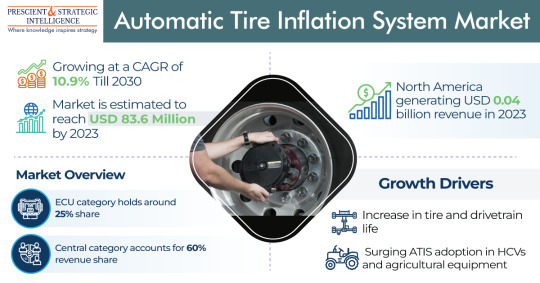
View On WordPress
#Automatic Tire Inflation System market#Automotive technology#Emerging opportunities#Fleet management#Fuel efficiency#Key players#Maintenance solutions#Market dynamics#market trends#Safety improvement#Tire management#Transportation industry#Vehicle Performance
0 notes
Text
Saving Dollars and the Environment: The Benefits of Vehicle Fuel Tracking Systems
where fuel costs are ever on the rise and environmental sustainability is a top concern, vehicle fuel tracking systems have emerged as powerful tools for both cost-conscious businesses and eco-conscious individuals.
These systems offer a host of benefits that go beyond mere cost savings, contributing to a greener, more efficient future.
In this blog post, we'll explore how vehicle fuel tracking systems can help you save dollars while making a positive impact on the environment.
1. Precise Fuel Monitoring
Vehicle fuel tracking systems provide real-time data on your fuel consumption. With accurate monitoring, you can identify any discrepancies in fuel usage, uncovering potential issues like fuel theft or inefficient driving habits. This level of precision helps you save money by eliminating unnecessary fuel expenses.
2. Fuel Efficiency Optimization
By analyzing the data collected by fuel tracking systems, you can pinpoint areas where you can improve fuel efficiency. This might involve adjusting routes, addressing engine maintenance issues promptly, or providing driver training to reduce fuel-wasting behaviors. The result is reduced fuel consumption and lower costs.
3. Reduced Carbon Footprint
Efficient fuel management not only saves you money but also contributes to a more sustainable future. Less fuel consumption means fewer carbon emissions, helping to reduce your vehicle's environmental impact. For businesses, this commitment to sustainability can also enhance your brand's reputation.
4. Route Optimization
Many fuel monitoring systems offer route optimization features. By planning the most fuel-efficient routes, you can reduce not only fuel consumption but also travel time. This is particularly beneficial for businesses with fleets, as it improves overall productivity.
5. Preventative Maintenance
Fuel tracking systems can alert you to potential maintenance issues early, allowing you to address them before they become costly problems. Regular maintenance keeps your vehicles running efficiently, which in turn saves fuel and reduces emissions.
6. Cost Savings
Perhaps the most compelling benefit of vehicle fuel tracking systems is the direct impact on your bottom line. With reduced fuel costs, improved fuel efficiency, and optimized routes, you'll see significant cost savings over time.
Conclusion
In the quest to save dollars and reduce our environmental footprint, vehicle fuel tracking systems stand out as a game-changer. They provide the data and insights needed to make informed decisions, optimize fuel usage, and contribute to a greener planet.
By embracing this technology, you're not just saving money; you're also making a positive impact on the environment. It's a win-win solution that businesses and individuals alike can benefit from.
#telematics#automotive#transportation#technology#fuel monitoring system#automobile#fleet management#fleet#fuel efficiency
0 notes
Text
Fuel Management Solutions: A Strategic Approach to Cost Savings
Unlock the potential for significant cost savings with innovative fuel management solutions. Learn how real-time monitoring, data analytics, and smart reporting can empower your organization to make informed decisions, minimize wastage, and achieve optimal fuel efficiency.
0 notes
Text
Navigating Efficiency: The Power of Advanced Fleet Management Tools
In the fast-paced world of logistics and transportation, the effective management of fleets is paramount. Enterprises rely on streamlined operations to meet customer demands, control costs, and ensure safety. In this tech-driven era, the integration of sophisticated software solutions has revolutionized the way fleet management is approached, paving the way for increased efficiency, cost savings, and improved decision-making. Among the array of solutions available, fleet management software, fuel management systems, driver behavior monitoring systems, fuel monitoring sensors, and logistics management software stand out as critical components in optimizing fleet operations.
Fleet Management Software: A Comprehensive Approach
Fleet management software is the linchpin of a well-organized and responsive fleet operation. It acts as the nerve center, providing real-time insights into vehicle locations, maintenance schedules, driver assignments, and more. These systems utilize GPS technology to track vehicles, enabling dispatchers to allocate resources efficiently, reduce idle time, and optimize routes. With features like predictive maintenance, scheduling, and reporting tools, fleet management software empowers businesses to enhance productivity and minimize downtime.
Fuel Management Systems: Maximizing Efficiency and Cost Savings
Fuel expenses constitute a significant portion of a fleet’s operational costs. Fuel management systems for fleet play a pivotal role in monitoring fuel consumption, identifying inefficiencies, and curbing unauthorized usage. These systems integrate fuel sensors and analytics to track fuel levels, consumption patterns, and refueling activities. By identifying fuel-wasting behaviors and optimizing routes, businesses can significantly reduce fuel expenses and environmental impact.
Driver Behavior Monitoring Systems: Fostering Safe and Efficient Driving
The behavior of drivers directly impacts fuel efficiency, vehicle maintenance costs, and overall safety. Driver behavior monitoring systems leverage telematics and sensors to track driving habits such as speeding, harsh braking, and idling. By providing actionable data and driver performance reports, these systems enable fleet managers to implement targeted training programs, incentivize safe driving practices, and ultimately enhance road safety while reducing operational costs.
Fuel Monitoring Sensors: Precision in Fuel Management
Fuel monitoring sensors are integral components of modern fleet management. These sensors, often installed directly into vehicles, provide accurate and real-time data on fuel levels, consumption rates, and any anomalies. The data obtained enables proactive decision-making, preventing fuel theft, detecting fuel leaks, and optimizing refueling schedules for maximum efficiency.
Logistics Management Software: Orchestrating Seamless Operations
Logistics management software integrates various aspects of supply chain management, including inventory control, order processing, and shipment tracking. By synchronizing these elements, businesses can optimize inventory levels, streamline order fulfillment, and ensure timely deliveries. The integration of logistics management software with fleet management systems enhances visibility across the supply chain, enabling more informed decisions and improving customer satisfaction.
Conclusion
In the competitive landscape of modern business, effective fleet management is indispensable. The integration of fleet management software, fuel management systems, driver behavior monitoring systems, fuel monitoring sensors, and logistics management software empowers businesses to streamline operations, reduce costs, and enhance productivity. Embracing these advanced technologies is not just about leveraging tools; it’s about fostering a culture of continuous improvement and innovation in the pursuit of operational excellence within the fleet industry. As technology continues to evolve, staying abreast of these advancements will be key to maintaining a competitive edge in the dynamic world of fleet management.
#fleet management software#fuel management system for fleet#driver behaviour monitoring system#fuel monitoring sensor#logistics management software
0 notes
Text
Understanding Taabi's AI-Driven Approach to Operational Efficiency
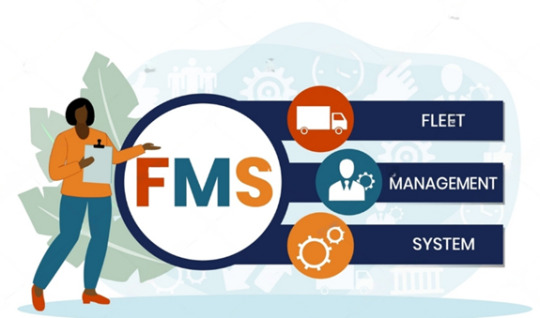
In today's fast-paced business landscape, operational efficiency is critical for success. Companies are continually seeking innovative solutions to streamline processes, reduce costs, and improve overall performance. Taabi, a leading provider of SaaS platforms, leverages artificial intelligence (AI) to enhance operational efficiency across various industries. This article explores how Taabi's AI-driven approach can transform businesses, focusing on its core features, benefits, and real-world applications.
The Power of AI in Business Operations
Artificial intelligence is revolutionizing commercial operations. Artificial intelligence (AI) systems are capable of analyzing vast amounts of data, projecting outcomes, and providing insightful advice. Taabi's fleet management system monitors operations in real-time using advanced algorithms, enabling companies to take prompt, decisive action. In addition to boosting productivity, this ability enables firms to identify issues early on and take appropriate action to keep them from getting worse. As a result, businesses can maintain a competitive edge and adeptly adapt to changing market demands.
Real-Time Monitoring for Enhanced Decision-Making
One of the key components of Taabi's AI-driven strategy is real-time monitoring. Taabi provides businesses with valuable information about their processes by continuously monitoring key operational data. The platform monitors several aspects such as fuel management system, vehicle health, cargo data, and driver behavior. Thanks to this real-time data, organizations can identify inefficiencies and quickly address them. Taabi's solutions can help businesses increase overall performance, reduce downtime, and streamline processes.

Predictive Analytics for Proactive Problem-Solving
Taabi's AI system employs predictive analytics in addition to real-time monitoring to foresee potential operational issues. Taabi uses historical data and patterns to predict when a vehicle may require maintenance or when a supply chain disruption may occur. This proactive approach enables businesses to take preventive action, which ultimately reduces the costs associated with unanticipated delays or breakdowns, including those related to a fuel monitoring system. Predictive analytics can assist organizations in enhancing their operational strategy and optimizing resource allocation.
Enhancing Fuel Efficiency with AI Insights
Fuel costs significantly impact a company's bottom line, particularly in industries that deal with transportation. Businesses can utilize Taabi's AI-driven solutions to examine fuel usage trends and find opportunities for improvement. Taabi analyses data from a logistics management system’s route, vehicle performance, and driver behavior to provide insights into fuel efficiency. To reduce fuel consumption, businesses may employ strategies like route optimization or encouraging drivers to adopt more fuel-efficient driving practices. This allows organizations to support environmental projects while also saving a substantial amount of money.

Improving Vehicle Health Monitoring
Vehicle health monitoring is a crucial component of Taabi's operational efficiency solutions. The platform continuously evaluates the state of the cars, giving real-time information about maintenance requirements. Businesses may take care of possible problems with this capacity before they become more serious and require expensive repairs or downtime. Taabi may use AI to examine a variety of data points, including wear and tear and engine performance, to identify the best maintenance schedule. By taking a proactive approach to vehicle health management, companies may increase asset lifespan and maximize uptime.
Optimizing Driver Behavior for Safety and Efficiency
The way drivers behave has a significant effect on security and operational performance. Taabi offers AI-driven solutions that include tools for monitoring driver behavior. Taabi monitors elements like as acceleration tendencies, hard braking, and speeding to provide drivers with relevant feedback. You may reduce your fuel consumption, improve your general safety, and improve your driving techniques by using this knowledge. Furthermore, companies can implement training programs based on Taabi's research findings to foster an efficient and safe work environment among their employees.

Streamlining Cargo Management
Logistics and transportation-related organizations need to have efficient cargo management. Taabi's products enable real-time cargo tracking, enabling companies to keep an eye on their shipments through the supply chain. Taabi can examine a range of variables that affect cargo management, including delivery schedules and route efficiency, by utilizing AI technology. With the use of this capacity, businesses may improve customer satisfaction, cut down on delays, and streamline their logistics procedures. Simplified cargo management boosts operational effectiveness and has a big effect on a business's standing in the industry.
Data-Driven Decision-Making
The significance of data-driven decision-making is emphasized by Taabi's AI-driven methodology. Efficient data analysis and interpretation are essential in an era of plentiful information. Taabi's solutions give organizations insights that may be put to use through thorough data analysis. Taabi improves operational strategies by enabling firms to make well-informed decisions based on real-time data. By promoting a culture of continuous improvement, this data-driven strategy helps organizations stay flexible in a cutthroat market and adjust to changing conditions.
Customization and Scalability
Taabi's products are notable for their exceptional scalability and customization capabilities. Taabi offers customized solutions since it understands that every organization has different operational needs. Businesses may alter the platform to meet their unique needs and make sure they get the most out of the technology. Furthermore, Taabi's solutions are scalable, enabling companies to grow and enhance their capabilities. Taabi is a desirable choice for businesses of all kinds, from start-ups to well-established corporations, due to its versatility.
Integrating IoT for Comprehensive Monitoring
The Internet of Things is further strengthened by Taabi's AI-driven approach (IoT). Taabi can collect real-time data from several sources and provide a comprehensive view of operations by linking different devices and sensors. Businesses can find inefficiencies in every aspect of their operations, from driver conduct to vehicle performance, thanks to this thorough monitoring. AI and IoT work together to produce a potent synergy that enables businesses to streamline their operations and raise overall productivity.
Businesses may enhance their operations using Taabi's all-inclusive process optimization solution, which is powered by AI. Utilizing data-driven insights, predictive analytics, and real-time monitoring, firms may boost efficiency, cut expenses, and perform better all around. Taabi's emphasis on scalability and customization guarantees that its products may be modified to satisfy the particular requirements of every company. Taabi stands out as a leader in offering cutting-edge, AI-powered solutions that propel success in today's competitive landscape as the demand for operational efficiency rises. Using Taabi's technology can help companies prosper and change with the times in a dynamic marketplace.
#fleet management system#fuel management system#fuel monitoring system#Logistics management system#transportation management system#driver behavior monitoring#vehicle health monitoring system
0 notes
Text
What is Fleet Fuel Management Software? What You Need to Know
The best Fuel Management System for fleets can make the process easier, cost-effective, and efficient. From tracking real-time locations to scheduling maintenance, the software helps optimise fuel usage. But, before investing in one, you should be aware of your fleet's needs. So, here is the guide to investing in top fleet fuel management systems.
#fleet fuel management software#fleet fuel management system#fms software in india#fuel management software in gurgaon
0 notes
Text
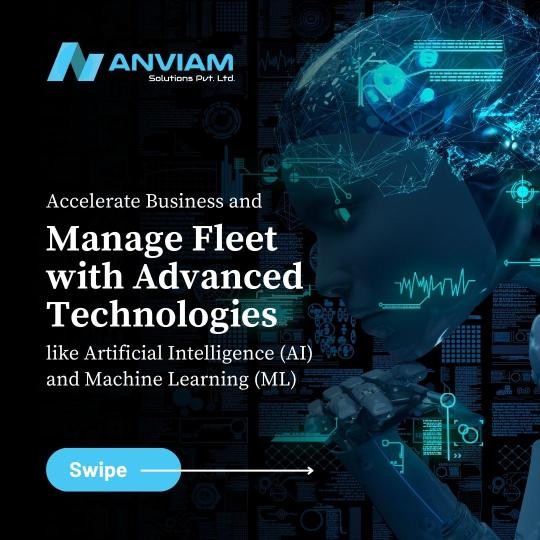
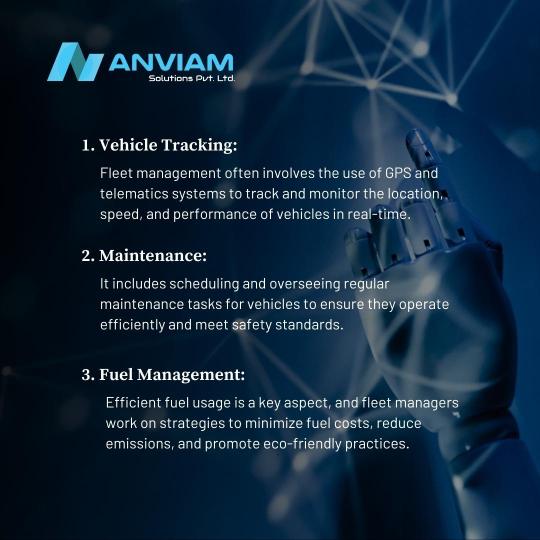
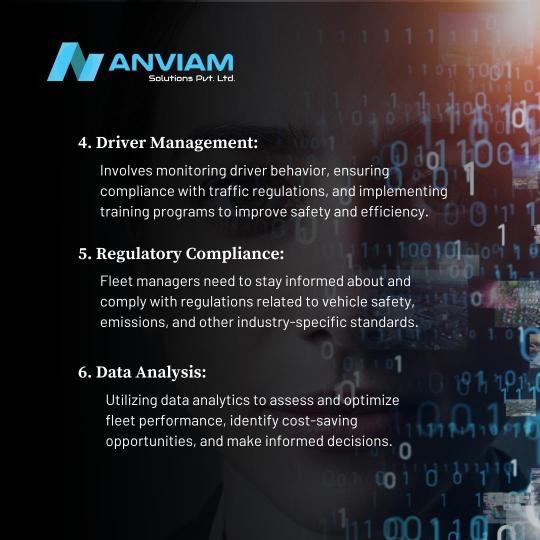

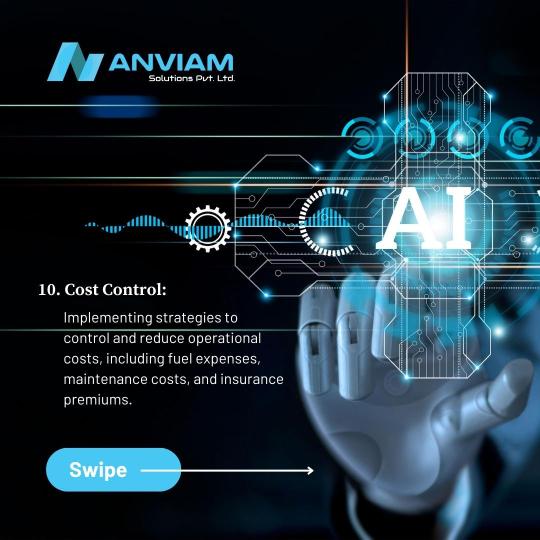

Accelerate Business and Manage Fleet with Advanced Technologies like Artificial Intelligence (AI) and Machine Learning (ML) :
➢ Vehicle Tracking
➢ Maintenance
➢ Fuel Management
➢ Driver Management
➢ Regulatory Compliance
➢ Data Analysis
➢ Asset Utilization
➢ Technology Integration
➢ Risk Management
➢ Cost Control
Fleet management plays a crucial role in various industries where a fleet of vehicles is an integral part of daily operations, such as logistics, transportation, delivery services, and more.
Contact us :
📞 +91-8360176682, +91-8054217664
🌐 www.anviam.com
📩 [email protected]
#fleet management#fleetmaintenance#anviamsolutions#anviam#objectives#software company#software development#app development#app design#app developing company#web design#webdevelopment#high maintenance#tracking software#tracking system#asset finance#fuel management system#fleet tracking#trending2023#digitalmarketing#business#blockchain#data analysis
0 notes
Text
Revolutionizing Transportation: Transport Monitoring and Management Software
In today’s fast-paced world, efficient transportation is essential for businesses across various industries to thrive. Whether it’s logistics companies managing fleets of vehicles or public transportation agencies coordinating routes and schedules, the ability to monitor and manage transportation operations effectively is paramount. Transport monitoring and management software have emerged as powerful tools to streamline operations, optimize resources, and improve service quality. In this blog, we’ll explore the features and benefits of transport monitoring and management software and how it’s revolutionizing the transportation industry.
Real-Time Tracking and Visibility: Transport monitoring and management software provide real-time tracking and visibility into the location and status of vehicles, assets, and shipments. By leveraging GPS technology and IoT sensors, businesses can monitor their fleets’ movements, track cargo in transit, and receive alerts for any deviations from planned routes or schedules. This real-time visibility enables proactive decision-making, allowing businesses to address issues promptly and minimize disruptions to operations.
Optimized Route Planning and Dispatching: One of the key features of transport monitoring and management software is optimized route planning and dispatching. Using advanced algorithms and historical data analysis, the software can determine the most efficient routes for vehicles, taking into account factors such as traffic conditions, road closures, and delivery deadlines. By optimizing routes, businesses can reduce fuel consumption, minimize travel time, and improve overall operational efficiency.
Enhanced Asset Utilization: Transport monitoring and management software enable businesses to maximize the utilization of their assets, whether it’s vehicles, equipment, or facilities. By monitoring asset usage and performance metrics, businesses can identify opportunities to improve asset efficiency, reduce downtime, and extend asset lifespan. This proactive approach to asset management helps businesses optimize resource allocation and improve return on investment.
Improved Customer Service: Efficient transportation operations are essential for delivering superior customer service. Transport monitoring and management software enable businesses to provide accurate and reliable delivery estimates, track shipments in real-time, and proactively communicate with customers about the status of their orders. By enhancing transparency and communication, businesses can build trust with their customers and deliver a positive experience that drives loyalty and repeat business.
Compliance and Reporting: Compliance with regulatory requirements is a critical aspect of transportation operations. Transport monitoring and management software help businesses stay compliant by automating compliance reporting and documentation processes. From driver hours-of-service logs to vehicle inspection records, the software captures and maintains all necessary documentation, ensuring that businesses adhere to regulatory standards and avoid costly fines and penalties.
Conclusion: Transport monitoring and management software are transforming the transportation industry by providing businesses with the tools they need to optimize operations, improve efficiency, and deliver exceptional service to their customers. With features such as real-time tracking and visibility, optimized route planning, enhanced asset utilization, improved customer service, and automated compliance reporting, businesses can stay ahead of the curve in an increasingly competitive market. By investing in transport monitoring and management software, businesses can unlock new opportunities for growth, innovation, and success in the transportation industry.
#artificial-intelligence#Fleet Management Software dubai#Fuel management system in dubai#smart-cities#supply-chain#supply-chain-management#technology#transport monitoring and management software
0 notes